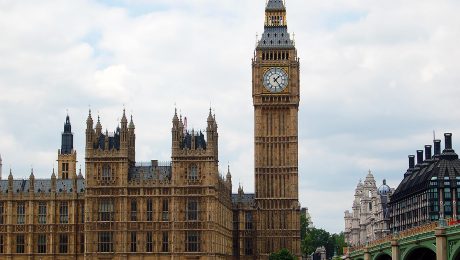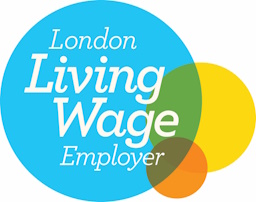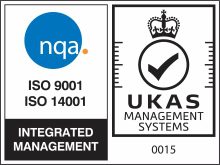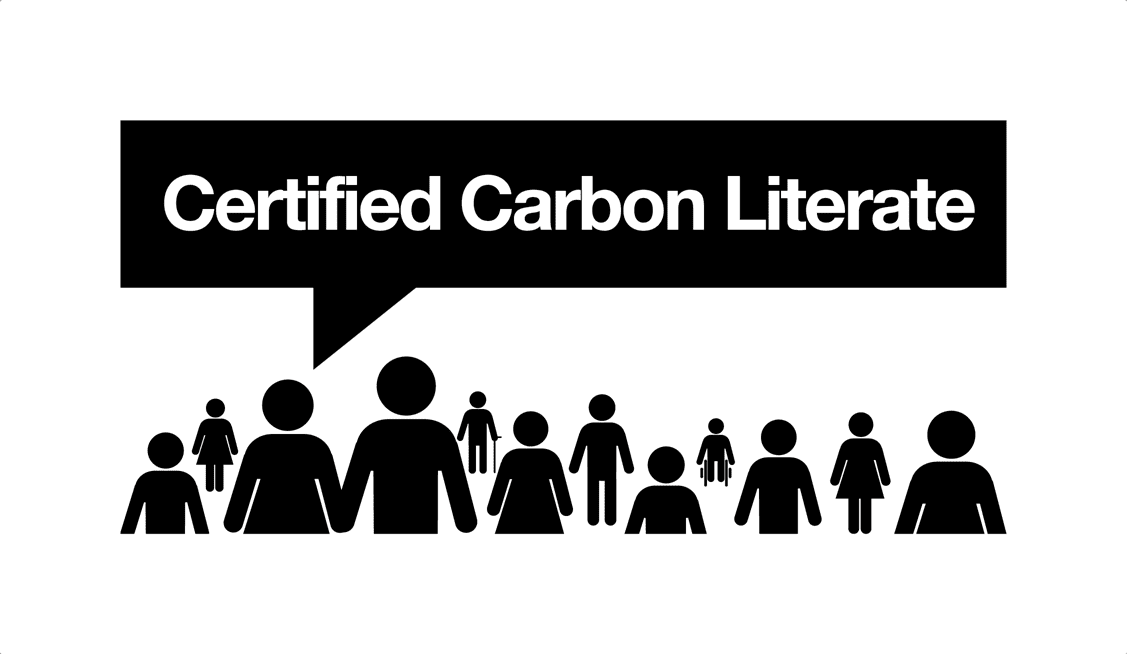HMRC to close CHIEF: What does this mean for your business?
Last year HMRC announced that the Customs Handling of Import & Export Freight Computer system (CHIEF ) will be fully replaced by a new system called the Customs Declaration Service (CDS) in 2023.
CHIEF will finally be closed in two phases:
- On 30 September 2022, it will no longer be usable for import declarations
- On 31 March 2023, export declarations will close on the CHIEF and the National Exports System (NES)
What Does This Mean?
That means that all businesses will have to make sure their customs brokers are up to speed with all changes and are confident in using the new system.
How Can We Help?
All Customs Broker staff in Staffordshire’s International Trade team have been on extensive CDS training with a HMRC approved training organisation and are fully accredited to complete your declarations.
In addition to allowing us to complete your export/import declarations, the new Customs Declaration Service will let you:
- Get your postponed import VAT statements or get your import VAT certificates so you can complete your VAT return
- Download monthly Deferment Account statements
- Make VAT and Duty payments
- Set up or change an intermediary or agent
- Keep a track of all your export and import declarations
What is Customs Declaration Service (CDS)?
It is already used for declarations for cross-border trade with non-EU markets and for goods moved between Great Britain and Northern Ireland under the Northern Ireland Protocol.
ChamberCustoms is one of the first customs brokers in the country who completed live declarations on the new CDS system, with the team here at Staffordshire being at the forefront.
Two months ago, we at Staffordshire completed the 1st EVER CDS export entry in the UK. Over the last 12 months we have been working closely with HMRC testing the new system and giving the feedback, so we are fully prepared for all changes.
What Should I Do?
As the first step of the transition to CDS all importers and exporters must register for use of the new system on the government website. You can do it by following the link below, it will take you no longer than 10 minutes: https://www.gov.uk/guidance/get-access-to-the-customs-declaration-service
At this current time, most customs brokers will still be completing the majority of entries on CHIEF until further notice, however, by completing the changeover process now, it allows an easier transition over to CDS before the CHIEF system used for Imports is disabled by HMRC in September.
It is our objective to move all our importing customers over to the new CDS system by August 2022, so we are ahead of the curve before CHIEF is switched off for imports.
As always, we are here to support all businesses. If you have any concerns about your customs clearances or any other international trade question, please give us a call: 01782 202222 and choose option 1 for International Trade, Alternatively you can send an email to chambercustoms@staffordshirechambers.co.uk
- Published in News
Sara’s Blog: Cabinet meets at Middleport, business concerns from the Queen’s Speech and Chambers’ refer a business scheme
On Thursday, Westminster came to Stoke-on-Trent as Boris Johnson hosted a meeting of senior government ministers at Middleport Pottery as ‘a prime example of levelling up in action’.
The cabinet discussed how proposed legislation in the Queen’s Speech, including planning reform and the Levelling Up and Regeneration Bill, would benefit areas such as Stoke-on-Trent which has been described as a ‘litmus test’ for the government’s levelling up agenda, and the city has been allocated £56 million of government funding for a series of regeneration schemes, including Etruscan Square in Hanley and the Goods Yard next to Stoke Station.
The Government says that the proposals included in the Queen’s Speech will further boost Stoke-on-Trent, by supporting the creation of more jobs and homes and improving living standards.
Tuesday’s Queen’s Speech had some welcome measures for business, but unless the Government takes immediate action on the economy, they will come too late to help many firms.
Chambers have already made it clear to government that an emergency budget is needed to provide firms with the breathing space they need to raise productivity and strengthen the economy.
The costs crises facing firms and people in the street are two sides of the same coin. If we can ease the pressure on businesses then they can keep a lid on the price rises being driven by surging energy bills, staff shortages and higher taxes.
Only after an emergency budget will some of the legislation set out in the Queen’s Speech have a chance to drive our economy forward. However, it will take some pressure as we heard from Michael Gove on Wednesday that the Government is resisting this option.
Businesses will then be able to focus on supporting the missions set out in the Levelling Up and Regeneration Bill, as well as reaping the benefits from the infrastructure programmes outlined today. However, to really speed up delivery of infrastructure projects, much wider reform of the planning system is needed to streamline the process and reduce complexity.
The Higher Education Bill gives a welcome commitment to create a flexible lifelong loan entitlement that allows adults to upskill and reskill for the changing workplace. Funding for modular learning is crucial to help people gain technical skills and ensure employers can access a skilled workforce.
The Brexit Freedoms Bill has the potential to unlock innovation and expansion in a range of new and developing technologies, especially the expanding world of Net Zero products and services.
We will want to look closely at how any changes will help business domestically but also their impact on our trade links and exports with the EU.
What we don’t want to see is deregulation for its own sake. We should not complicate our trading relationship by diverging so far it makes UK goods and services unsellable into Europe.
If you have any questions, views or concerns about the issues above please contact us info@staffordshirechambers.co.uk or join the debate at our virtual members lounge Virtual Members’ Lounge (staffordshirechambers.co.uk)
Refer a business – get free hospitality vouchers
Did you know that you can refer a business to join the Chambers and in return you will get hospitality vouchers worth up to £100 once they sign up to membership?
It’s a simple process, all you need to do is fill in the details on our online form and we contact the business. Once they have joined, we will inform you and you can choose your vouchers from a range of great venues including Aston Marina, Trentham Estate, The Potters Club, Doubletree by Hilton, Port Vale FC and many more.
To see how simple it is to refer a business and to view the full range of hospitality venue voucher suppliers, visit the page on our website: Refer a Business – Staffordshire Chambers
If you want to talk to us about any business issues, including funding, you can call our switchboard on 01782 202222 or call the Stoke and Staffs Growth Hub Helpline on 0300 111 8002 or email: info@staffordshirechambers.co.uk
- Published in News
The Queen’s Speech: How will the new bills impact the business community?
Staffordshire Chambers’ Policy Advisor, Rhouda Elalfy offers a comprehensive insight into what the new bill aims to do, and outlines the key impacts and benefits for business.
Levelling Up and Regeneration Bill
- This bill was brought forward to drive local growth and ensure that everyone can share in the United Kingdom’s success. The Bill aims to level up the UK, grow the economy in places that need it most and regenerate towns and cities.
- Under the new bill a duty will be placed on the Government to set Levelling Up missions and produce an annual report updating the country on these missions.
- The bill will also unlock new powers for local authorities to help them bring empty premises back into use.
- The Government has promised to improve economic dynamism and innovation beyond the progress already made, which include a transport settlement for the West Midlands exceeding £1 billion, £46.3 million from the Towns Fund for two areas in the region, and almost £400 million from the Levelling Up Fund to improve local infrastructure across the Midlands.
- The bill will lay the foundations for all of England to have the opportunity to benefit from a devolution deal by 2030 and will simplify and standardise the process for local plans.
Energy and Security Bill
At the Global Investment Summit in October 2021, the Prime Minister announced a package of 18 deals to support green growth worth over £9.7 billion.
- The Government has stated its commitments in the British Energy Security Strategy and the Ten Point Plan for a Green Industrial Revolution
- The Bill will introduce state-of-the-art business models for Carbon Capture Usage and Storage, creating new low-carbon technologies.
- The Bill will also support industry to step up investment in growing the consumer market for electric heat pumps by providing for a new market standard and trading scheme. This will support innovation and help to lower the costs of heat pumps over time.
- The new Bill will reduce the risk of fuel supply disruption by giving Government the power to give directions and require information from fuel sector businesses, ensuring resilience and continuity of fuel supply.
- The Bill will extend the energy price cap, preventing supplies from overcharging consumers and will introduce competition in Britain’s onshore electricity networks, encouraging more investment and innovation.
Draft Digital Markets, Competition and Consumer Bill
Weak competition in the UK’s digital advertising market is leading to higher prices for consumers. The Competition and Markets Authority estimates that consumers lose £2.4 billion per year from Facebook and Google’s high advertising prices alone.
This legislation will strengthen consumer rights and protect households and businesses, creating new competition rules for digital markets and the largest digital firms.
- This Bill will provide more choice and better quality services for consumers and businesses.
- The Bill will also create opportunities for UK tech companies to flourish and offer new products and services which will drive innovation and a more dynamic digital economy.
- The new Bill will empower the Digital Markets Unit to designate a small number of firms who are very powerful in particular digital activities, such as social media and online search with Strategic Market Status.
- The Digital Markets Unit powers to proactively address the root causes of competition issues in digital martes will impose interventions to inject competition into the market.
- The Bill ensures that businesses across the economy that rely on very powerful tech firms, are treated fairly, and can succeed without having to comply with unfair terms.
Procurement Bill
By improving the way public procurement is regulated, the Government can not only save the taxpayer money but drive social, environmental, and economic benefits across every part of the UK.
- The Procurement Bill expanded on plans to enshrine in law the core objectives of public procurement which focuses on maximising public benefit, treating suppliers without discrimination, and ultimately delivering value for money on all projects.
- The bill will give public sector buyers more freedom and flexibility by allowing them to better negotiate with suppliers and to design the buying process to meet the needs of their specific procurement.
- The Bill will also make it easier, specifically for small and medium-sized businesses to bid for public sector contracts.
- Through the procurement Bill buyers will be able to disqualify suppliers who are unfit to bid for public contracts because of past misconduct, corruption or poor performance.
Transport Bill
This Bill will create Great British Railways, which will deliver a better experience for passengers and freight customers with more punctual and reliable services. Legislation will be introduced to modernise rail services and improve reliability for passengers.
- The Bill will enable innovation in transport, improving safety and providing new choices for the public, whilst attracting investment to the UK.
- The Bill will also simplify the railways to ensure a better and more reliable service for passengers, to support economic growth across the country and ensure the survival of the railways.
- As part of the Transport Bill, legislation will enable the installation of more electric vehicle charge points throughout the UK as part of the transition away from new petrol and diesel car and van sales by 2030 as well as building public confidence to switch to zero emission vehicles.
- The Bill will keep the UK at the forefront of transport innovation and will deliver the reforms that the Government have promised to decarbonise transport, transform the way people travel and better connect communities.
Higher Education Bill and Skills
The Skills system has been very efficient at producing graduates but there is still a need to ensure that people get the quality technical skills that employers want.
- The introduction of the Lifelong Loan Entitlement will provide individuals with a flexible means of providing loan support equivalent to four years of post-18 study for a wide range of study opportunities, including shorter and technical courses.
- Total Government investment in skills planned to reach £3.8 billion in England by 2024/25.
- The new Schools Bill intends to support schools to be part of strong trusts, improving school standards and ensuring that funding is allocated to schools on a fair and consistent basis.
Financial Services and Markets Bill
The new legislation will strengthen the United Kingdom’s financial services industry and will ensure that it continues to act in the interest of all people and communities.
Financial and related professional services are vital to the UK economy, employing more than 2.3 million people across the UK, and contributing more than £193 billion to the economy.
- The new Bill will maintain and enhance the UK’s position as a global leader in financial services, ensuring the sector continues to deliver for individuals and businesses across the country.
- The Bill will create a competitive marketplace for the effective use of capital, supporting economic growth.
- The Bill will support individuals’ confidence in financial services by ensuring continued access to cash across the UK and protecting people from scams.
- The objectives of the financial services regulators will be updated to ensure a greater focus on growth and international competitiveness.
- The Bill will introduce additional protections for those investing or using financial products, to make it safer and support the victims of scams.
- Published in News
The Queen’s Speech: Staffordshire Chambers’ reaction
Yesterday, the Queen’s Speech, delivered by Prince Charles on behalf of the Queen, highlighted the Government’s priority to “grow and strengthen the economy and help ease the cost of living”.
The 38 new bills included some welcome measures for businesses and set out ambitious goals which aim to grow an economy built on core foundations including sustainability, investment in transport and infrastructure and developing the nation’s skills
However, unless the Government takes immediate action to implement the legislations and enforce urgent action on the economy, it will be too late to help many firms.
The cost of living and cost of doing business crisis is substantially affecting both consumers and businesses. By easing the pressure on businesses now, they will be able to contain rising prices which are currently being driven by increasing energy bills, staff shortages and higher taxes.
Sara Williams, CEO of Staffordshire Chambers of Commerce, said: “The legislative agenda highlights the key issues being faced by businesses as we emerge from the pandemic. If delivered correctly, the long-lasting implications will undoubtedly grow and strengthen the economy, as the Prince of Wales has stated.
“We were pleased to see the announcement of the legislation to support economic growth and the delivery of net zero showing the Government’s commitment to support the transition to net zero by 2050.
“Through the new procurement bill, procurement will become more accessible for small businesses and charitable and social enterprises which will enable them to compete for public contracts, maximising opportunities for business.”
We look forward to seeing the implementation of the new bills and we welcome all appropriate support which can be offered to businesses to alleviate the pressures they are currently facing.
- Published in News
Policy Spotlight with Rhouda: BCC call for the Chancellor to hold an Emergency Budget
This morning, the British Chambers of Commerce has called for an immediate emergency budget to deal with the costs crises facing both businesses and people. As interest rates were increased for the fourth consecutive time by the Bank of England last week to 1.0% from 0.75%, concerns have been raised around the cost of living and cost of doing business and the subsequent effect on the UK economy.
The British Chambers of Commerce has developed a three-point action plan that would allow firms to keep a lid on rising prices, boost productivity and ease cost pressures.
The proposals include easing upfront costs of doing business by reversing the recently introduced National Insurance increase until 2023/2024. The BCC has also called for more support to be provided to firms to help them manage the impact of rising energy prices by cutting VAT on energy bills from 20% to 5% for a minimum of one year.
As labour shortages continue to impact business operations, the BCC has called for the government to address the issue by reinstating free covid tests for companies to ease the strain on productivity caused by persistent high absences.
Shevaun Haviland, Director General of the British Chambers of Commerce, said: “Businesses were optimistic about their prospects until last month, and business confidence has taken a big dent.
“If we can ease the pressure on businesses, then they can keep a lid on the price rises being driven by surging energy bills, staff shortages and higher taxes, firms will then have the breathing space they need to raise productivity and strengthen the economy. If the government does not act immediately then rising costs will put our economic recovery in a stranglehold that will have repercussions for years to come.”
Sara Williams, CEO of Staffordshire Chambers of Commerce, said: “The latest monthly economic review has suggested that the UK is entering a period of considerably weaker growth due to various factors including energy prices and higher taxes. Chambers across the network have engaged with their member community over the last several months and it is clear that business confidence is deteriorating which is likely to have an impact on business productivity and economic output.
“It is critical that the government acts immediately to provide some business relief. As many businesses in the UK are seeing above average absence rates as Covid continues to impact the workforce, bringing back free testing would enable firms to reduce the infection rates amongst staff members.
“The latest trade figures have highlighted the drop in exports and imports especially with EU countries, without immediate relief for businesses there is significant risk that companies will stop investing in the UK, further impacting the country’s economic position.”
We now urge the Chancellor to act quickly in favour of UK businesses by holding an emergency budget before the autumn. Making these changes would have an immediate benefit for both businesses and the public.
If you would like to raise any business concerns or issues with us, get in touch with our policy team by emailing rhouda.elalfy@staffordshirechambers.co.uk or call our switchboard on 01782 202222.
- Published in News
Sara’s Blog: Carbon literacy training to expedite our action on climate change
This week I was delighted and proud that many of the Chambers’ team attended a carbon literacy course through Staffordshire Business & Environment Network (SBEN) leading to the award of the Carbon Literature Citizen Certificate.
Throughout the day, the training majored on understanding your own personal carbon footprint and its impact, enabling staff with the knowledge and confidence to be able to advise businesses about reducing carbon emissions.
This is now one of the most important topics businesses are facing and the training will ensure that we can help deliver carbon neutrality/net-zero for our Staffordshire businesses as well as for our own organisation.
This is not an abstract issue. We all need to act now as the world continues to warm. We must reduce carbon emissions for ourselves our children, our businesses and our planet.
If you haven’t come across SBEN yet, then I would recommend you do so. Launched in 1992 they exist to support organisations to achieve long term sustainability and maximise their business opportunities through innovative environmental activity. They are a membership organisation, entitling members to subsidised and free initiatives from within their portfolio.
For the past thirty years they have provided practical advice on developing and implementing environmental policies as well as promoting examples of good environmental practice through training, counselling and consultancy. It also provides practical advice on developing and implementing environmental policies as well as promoting examples of good environmental practice.
If environmental considerations do not affect you today, they surely will tomorrow. Supply chain pressure coupled with stakeholder expectations and the continuous stream of environmental legislation is impacting every business.
More information on SBEN and the course can be found on the SBEN website: Home – Staffordshire Business & Environment Network (sben.co.uk)
You can calculate your current carbon footprint at: https://footprint.wwf.org.uk/
Monthly Economic Review:
As we are already one week into May, it’s time to reflect on April’s economic data. With UK inflation continuing to increase causing a further squeeze on household finances, the deteriorating economic outlook risks weakening labour market conditions by impacting recruitment and limiting firms’ availability to increase wages and invest in their staff.
April’s data has suggested that the UK is entering a period of considerably weaker growth due to rising inflation, surging energy bills and higher taxes which consequently damage UK output. It is critical that the Government provides more financial support through the expansion of the energy bills rebate scheme, including small firms and energy-intensive businesses as well as introducing an SME energy price cap to protect smaller firms from some of the price increases.
Through our quarterly business forums, we are able to engage with our members about consumer and business confidence, both of which have remained low during the first quarter of this year. Without an immediate response from the Government addressing the price rises for businesses and consumers, weakening confidence will further limit discretionary spending, therefore impacting business growth and the global competitiveness of UK firms.
You can find out more about our business forums by emailing Rhouda.elalfy@staffordshirechambers.co.uk or you can register to attend the next forum by visiting our events calendar here: https://staffordshirechambers.co.uk/shop/events/.
If you want to talk to us about any business issues, including funding, you can call our switchboard on 01782 202222 or call the Stoke and Staffs Growth Hub Helpline on 0300 111 8002 or email: info@staffordshirechambers.co.uk
- Published in News
“It’s life changing for your business” – how a #StaffsBizAwards win helped a Staffordshire business to reach new heights
With just three days to go until applications for the 2022 #StaffsBizAwards close, Flawless Skin Clinic founder Tara Farmer has spoken about how a win at the 2021 awards helped her business to reach new heights.
Flawless Skin Clinic won the ‘Most Promising New Start-Up Business’ award last year – one of 15 categories that are completely free to enter for both Chamber members and non-members.
Tara said: “I would urge all businesses to go for it and submit an application for the 2022 awards before the deadline on Friday.
“It really is life-changing in terms of your business. It not only helps to publicise your business, but we reached new clients who had come to us after seeing us win. The fact that we were recognised as award winners was really important to them.”
Category sponsors, Access Covers LTD, were so impressed by Tara’s application that they made a £5,000 donation to help support their business growth.
John Tudor, Access Covers MD, said: “We were introduced to Flawless Skin Clinic during the judging process for the awards and wanted to pass on some of our thanks to the business community and thought this would be a great opportunity to do so.
“We wouldn’t be where we are today if it wasn’t for Staffordshire Chambers and would like to thank them for their support and for helping connect us with Flawless Skin Clinic.”
Complete your fast and free #StaffsBizAwards application, here.
- Published in News
Policy Spotlight with Rhouda: UK delays import checks on goods from the EU
Last week, the Government announced its plans to postpone checks on imported food and fresh products arriving from the European Union until the end of 2023 due to the current rise in inflation. As food prices continue to rise, the extra costs from new checks on meat, fish, dairy and other products would fuel inflation, increasing costs for businesses and the general public.
The new import controls were due to begin in July, starting with requirements for animal products for human consumption, germinal products and animal by-products not for human consumption.
Sara Williams, CEO of Staffordshire Chambers of Commerce, said: “Over the last nine months, UK trade with the EU has remained stubbornly flat due to the impact of Brexit and the significant challenges that businesses across the nation have faced. By introducing new checks on imported foods from the EU, it is likely that our exports to the EU and imports from the EU will be damaged further.
“Chambers across the network will welcome the delay, especially as we see the Government recognise the difficulties that firms are currently facing. However, it is now essential that all food checks and associated paperwork between Europe and Great Britain are removed by ensuring that there is a negotiated agreement on rules for trade in animal and plant products.”
Brexit Opportunities Minister, Jacob Rees-Mogg explained the importance of having the right import controls regime in place, stating that the UK should have a “safe, secure and efficient” process of importing goods from the EU.
William Bain, Head of Trade Policy at the British Chambers of Commerce, said: “Given current economic circumstances, it’s sensible to postpone the implementation of import food checks. Customs checks on goods and increased paperwork have damaged our exports to the EU, particularly from smaller businesses.”
As the Minister has delayed the checks on imported goods from the EU for the fourth time, it is now critical that the EU-UK trade deal and Cooperation Agreement is revisited in order to deliver a long-term trading solution suiting both parties.
The current crisis in the cost of living has meant that firms are already facing higher costs due to the war in Ukraine as well as the rising energy prices. Therefore, by postponing the checks on imported goods, the Government have removed the further burden which would be placed on firms across the UK. We now urge the Government to address both the cost-of-living crisis and the cost of doing businesses crisis in order to support our firms to grow and invest further.
If your firm requires support in navigating the post-Brexit trading landscape, you can call our switchboard on 01782 202222 or email Rhouda.elalfy@staffordshirechambers.co.uk.
- Published in News
Sara’s Blog: Survey highlights recruitment difficulties & a week to go until awards entry deadline
The latest figures released this week by the British Chambers of Commerce show the pressure on firms struggling to recruit staff remains at record high levels. The data for the leading business group’s Quarterly Recruitment Outlook survey for Q1 2022 was drawn from a survey of 5,500 businesses.
Attempted recruitment in Q1 was down slightly with 60 percent looking to recruit staff (64 percent in Q4). However, the proportion of firms reporting difficulties filling roles remains at a historical high at 78 percent, dropping just one percentage point from the previous quarter (79 percent).
The hospitality sector was facing the most challenging recruitment issues, with 85 percent, reporting difficulties, up from 83 percent in Q4 2021. This was closely followed by construction on 83 percent, logistics on 81 percent and manufacturers at 80 percent.
Retail and wholesale firms were the least likely to report difficulties at 69 percent but the proportions of firms that cannot find the staff they need remains worryingly high.
Views from Business
Firms reported a broad range of issues which contributed to the overall recruitment squeeze – this included disruption due to Covid and a drop in the availability of foreign staff. More firms are also reporting that wage competition is proving disruptive.
One medium-sized professional services firm in the West midlands reported: “We are finding it difficult to recruit all levels of staff. Applicants can choose between several employers as we are all chasing the same people. They feel we are on the edge of the Midlands but still expect Birmingham salaries.”
The owner of a small hospitality firm said: “We are prepared to pay more for the right people, but there just seems to be no one to employ. If we cannot get staff our service slips drastically because we don’t have enough people to serve our customers.”
It’s now harder than ever for businesses to fill job vacancies and there are no signs of improvement. In an increasingly tight labour market, competition for skills is ramping up wage costs, leaving many firms unable to recruit the people they need.
When combined with the escalating price of energy, shipping, raw materials and other costs, it is a precarious situation for businesses. Inevitably, it is the smaller firms, with little in the way of cash reserves after two years of the pandemic, who are most exposed to the risk all this presents.
The UK government needs to take concrete action to address labour shortages as they are a key factor in the economy’s stuttering recovery. If firms cannot get the people they need then productivity and revenue are two of the first casualties.
Government must also ensure that people can access rapid retraining opportunities for in-demand jobs at all skill levels in the workforce. At the same time, where there is clear evidence of national shortages damaging the economy, we need temporary visas for hard working people willing to come to the UK to work in the essential everyday roles that we all rely on.
Businesses are investing more in developing homegrown talent – and creating a more inclusive and diverse workforce – but this won’t solve pervasive skills shortages overnight. Right now, the priority must be to improve access to skills and ease the wider cost pressures facing business.
If you have any issues around recruitment or would like to join our HR, Employment and Skills Forum, please email Suzanne Quinn: suzanne.quinn@staffordshirechambers.co.uk
Entries for the 2022 Staffordshire Chambers Business Awards close at 5pm on Friday 6th May.
Staffordshire Chambers Business awards are a great opportunity for you to spotlight your business and get recognition for your work during the last 12 months. Shortlisted businesses receive invaluable coverage in local press and across social media and will be invited to a gala evening celebration on 14th July. There are 15 award categories and one of the winners will also be crowned as overall Business of the Year.
Entry details and award categories and sponsors: www.staffordshirechambers.co.uk/awards
If you want to talk to us about any business issues, including funding, you can call our switchboard on 01782 202222 or call the Stoke and Staffs Growth Hub Helpline on 0300 111 8002 or email: info@staffordshirechambers.co.uk
- Published in News
April SDG Spotlight – #13 Climate Action
Plastic Packaging Tax
In April 2022, the Government implemented a new plastic packaging tax (PPT) in order to combat the use of single plastic and to encourage greater reliance on recycled plastics. PPT will be payable on any plastic packaging that is produced or imported into the UK which does not contain at least 30% recycled plastic. The new tax is payable by the manufacturer or importer at a rate of £200 per metric tonne.
Any organisation that manufactures or imports more than 10 tonnes of plastic packaging over a 12-month period must register for PPT regardless of the amount of recycled plastic their packaging contains. However, PPT will only be paid if the plastic packaging does not contain at least 30% recycled plastic.
What does this mean for businesses?
The new PPT will mean that every business manufacturing or importing more than 10 tonnes of plastic packaging will now have to keep up with the recording keeping requirements, such as identifying and recording every single item of plastic packaging used to package goods imported into the UK and must consider compliance obligations in advance.
Plastic Packaging is used in a wide variety of sectors, meaning that PPT will have a broad impact, affecting retailers, manufactures, publishers, as well as other businesses.
How will PPT contribute to SDG 13-Climate Action?
PPT is an environmental tax designed to provide a financial incentive for businesses to use recycled plastic in the manufacture of plastic packaging. By implementing PPT firms will become more aware of the amount of unrecycled plastic packaging they use when packaging goods. By increasing awareness of this and by charging firms for their use of unrecycled plastic packaging more businesses are likely to take a step towards making a change and using more recycled packaging. This will not only save money for businesses but will make them a more sustainable and environmentally friendly company. PPT is designed to stimulate increased levels of recycling of plastic waste and divert it away from landfills or incineration, which will consequently reduce CO2 levels in the atmosphere and work towards improving climate change.
As the new PPT is expected to have a broad impact on UK businesses, if every business that manufactures or imports more than 10 tonnes of plastic packaging was to make a small change towards using more recycled plastic, we would be a lot closer as a country to achieving SDG 13.
- Published in News












